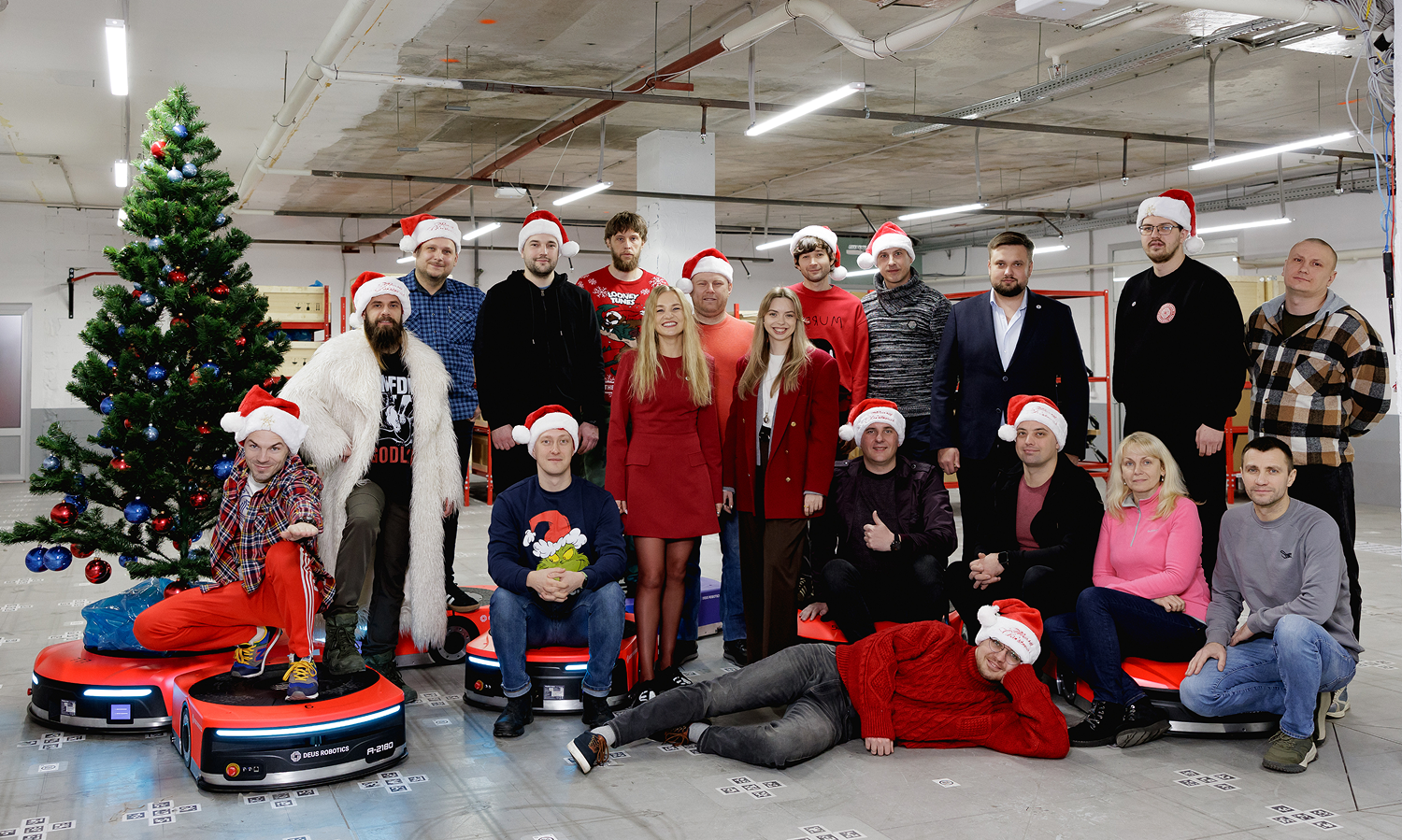.jpg)
1991 Ventures, publicly announced in spring 2024, is a London-based Seed fund empowering mission-driven founders from CEE and Ukraine, leveraging the network of 1991 Accelerator. With a legacy of nurturing 200+ startups and helping them to secure $10M+ in funding, 1991 Ventures specialises in govtech, cybersecurity, fintech, and more. 1991 Ventures aims to bridge founders with London's capital and the UK as a global springboard for tech companies.
In the spring of 2024, the fund became an implementing partner of the UK-Ukraine Tech Bridge, establishing the Investment Accelerator program to help Ukrainian startups enter the UK market. The first cohort of startups included Aspichi, Birb, Cardiomo, CASES, Djooky, FortuneGuard, GIOS, knopka, FlyAgData, Deus Robotics, Kodisoft, Kuka, Medvoice, Metaenga, NeuCurrent, NLSQL, Spendbase, PLATMA, Wantent, and Zibra AI.
In a column for AIN.UA, Viktor and Denys Gurskyi are sharing insights about the UK market for Ukrainian early-stage founders and its specifics they need to explore.
Investment Climate
Brief Overview
- The UK venture investment market ranks first in Europe and third in the world.
- In the first quarter of 2024, British venture funds attracted a record $50.2 billion.
- In 2023, the technology sector surpassed the $1 trillion mark for the first time in history.
- The UK has 547 active venture and private funds (according to Beauhurst research).
Apart from focusing on technology trends (AI, energy, fintech, and others), UK venture funds increasingly prefer startups with balanced growth models, which include strategies for diversification, cost reduction, and increased operational efficiency. Companies that quickly achieve great success are more prone to financial crises, management problems, maintaining momentum, etc.
Denys Gurskyi, partner at 1991 Ventures, adds: "From a geographical and geopolitical perspective, the UK is the most attractive country for Ukrainian startups seeking investment in Europe. Its proximity to Ukraine, stable political climate, active support for innovation, and international environment create favorable conditions for business development."
It is important to note that the volume of late-stage deals, such as Series D+, has significantly decreased, which benefits startups that are just starting or in the process of scaling. Some of the most active and well-known UK-based funds that founders should explore include Antler and SFC Capital (the most active early-stage funds according to Sifted), Balderton Capital, Octopus Ventures, Index Ventures, Earlybird Venture Capital, and Accel Partners.
Of course, a large number of active venture funds itself does not guarantee anything. Actually, having more potential investors means you have to put in more work on relations with them: build contact with target investors in advance and maintain it. They should know about the startup at least 6–12 months before your round begins and receive monthly/quarterly updates on your achievements.
To attract significant investments from UK-based funds, a startup must demonstrate existing international traction. Therefore, the first step in eary-stage startup’s fundraising could be targeting funds with a narrow focus (by phase, industry, or geography), public or corporate venture capital (such as Google Ventures). Be prepared for due diligence. If investors are interested, they will want to conduct a thorough check of your business, including financial reporting, legal aspects, IP (intellectual property), and other important factors. Ensure all necessary documentation is prepared and be ready to answer questions.
Community and Networking Conditions for Growth
Viktor Gurskyi: "The UK is home to over 30,000 tech startups. Consequently, the country has a developed network of accelerators and incubators that support early-stage startups. These programs provide access to mentorship, funding, and business resources, helping startups grow and succeed faster in the UK.
In addition to traditional incubators and accelerators, there are many private clubs and communities for entrepreneurs in London that serve as platforms for networking and development. For example, Home Grown, a leading business club in London, brings together over 4,500 members and offers regular pitching events, partner events, closed investor dinners, and many opportunities. Another example, Tech London Advocates, unites over 15,000 founders, experts, and investors supporting the development of London's tech sector. The community regularly holds open summits on various topics, as well as smaller networking and knowledge-sharing events.
Overall, numerous tech events take place daily in London, ranging from official conferences to informal meetings in the format of tech poker, both open and closed, with fees for events or membership. These events facilitate organic networking and lay the foundation for new partnerships.
A strong tech community of Ukrainians (UA Tech in London) with over 300 members has already formed in the UK as well, so you won't be alone with local challenges. These are very local things that are hard to learn about from outside the UK."
Setting Up a Company in the UK
The openness of the country's government to international businesses is crucial in the long term, and the UK does not disappoint. The UK's support for Ukraine on the international stage also creates a favorable environment for Ukrainian startups.
Oleksandr Bornyakov, Deputy Minister of Digital Transformation for IT Development, notes: "Developing international partnerships and attracting new businesses to the country is among the top six priorities of the UK's international tech strategy. Our UK-Ukraine Tech Bridge initiative is a bright example of the UK's openness to Ukrainian startups and their integration into one of the world's strongest startup ecosystems, with numerous opportunities for fundraising, scaling, and partnerships."
The process of registering a company in the UK is very simple, fast, and accessible. Company registration is done through Companies House. You can register a company online in a few hours, and registration costs just £12. On the Companies House website, you'll find a step-by-step guide on registering a Ltd company.
Registration includes the following steps:
- Registering the company with Companies House and simultaneously registering for corporation tax
- Registering the company name (checking its availability, compliance with rules, and absence of an existing trademark with that name)
- Registering an official company address
- Selecting a SIC code that identifies the type of business activity
- Appointing directors and defining their roles and responsibilities
- Identifying shareholders or guarantors (at least one shareholder or guarantor is required; if you have shareholders, you need to issue company shares)
- Identifying PSC: persons with significant control (over 25% of shares or voting rights) must be registered
- Preparing a memorandum and articles of association that outline the company's management rules
For foreign startups looking to have a physical presence in the UK, the most popular visas are Global Talent and Innovator Founder. They are an important part of the UK's strategy to attract highly skilled professionals worldwide, fostering innovation and growth in the global market. You can learn more about the application process and requirements on the gov.uk website.
It is also essential to study in detail the current projects and services provided by the Department for Business and Trade (DBT). Attracting foreign startups to the UK is one of their key priorities, and they are ready to offer many opportunities: access to introductions, mentorship, and other resources for scaling in the UK. Programs such as the Global Entrepreneur Programme (GEP), Help to Grow from DBT, and Innovate UK grants from the UK Research and Innovation Agency can be particularly useful. GEP supports innovative companies in establishing global headquarters in the UK, while Help to Grow provides centralized support for businesses, including training focused on increasing the customer base and profits.
Embassies are also an underappreciated resource for startups expanding into other markets. The British Embassy team is open to consultations, can provide market information, regulatory requirements, and help you establish contacts with local partners.
Taxes
The UK ecosystem is unique, particularly due to government policy: the government actively supports innovative projects through tax incentives, grants, and other financial incentives.
The general corporate tax rate in the UK is 19% for profits up to £250,000 and 25% for larger profits, which are competitive rates internationally.
There are also numerous tax incentives for innovative companies, such as R&D Tax Credits, which significantly reduce the tax burden on research projects. Research and Development (R&D) Tax Credits allow companies to reduce their tax liabilities or receive cash refunds for R&D-related expenses.
For small and medium-sized enterprises (SMEs): companies can receive a tax deduction of up to 230% of R&D expenses. This means that for every £1 spent on R&D, £2.30 can be deducted from taxable profits.
For large companies: through the Research and Development Expenditure Credit (RDEC) program, large companies can receive a tax credit of 13% of qualifying expenses.Expense coverage includes payroll, materials, external services, and some other costs directly related to research and development. Cash refunds: if a company has no taxable profit, it can receive a cash refund from HMRC.
There are also more localized tax programs for startups. For example, the Patent Box allows companies to reduce the corporate tax rate to 10% on profits from patented inventions. The Enterprise Investment Scheme (EIS) and Seed Enterprise Investment Scheme (SEIS) incentivize investors to invest in new startups by providing significant tax reliefs: income tax relief of 30% (EIS) or 50% (SEIS) of the investment amount and protection from capital gains tax for shares held for at least three years.
Conclusion
Choosing a country for scaling (fundraising, team, or product) can be a decisive factor for a startup. Engage advisors or mentors with experience in scaling in the UK. There are already many success stories among Ukrainians in the UK; reach out to them and explore their cases.
At 1991 Ventures, we firmly believe that the UK is a favorable place for Ukrainian startups aiming to enter the international market. The open startup community and government support will help you quickly adapt and find the necessary resources.
Finally, do not hesitate to send us your pitch decks and share your inquiries.
The global trend among startups is to scale in the US due to increased valuations and fierce competition. But should you start with the US? The simplest factor is the time difference between Ukraine and the UK is only 2 hours. This simplifies business process synchronization and team communication if you do not plan to be physically present in the UK or build a team in multiple countries simultaneously. The same applies to European countries, but the UK wins in terms of fundraising, government conditions, ecosystem size, and projects that foster startup development.
Authors: Viktor and Denys Gurskyi, Founders


.jpg)


